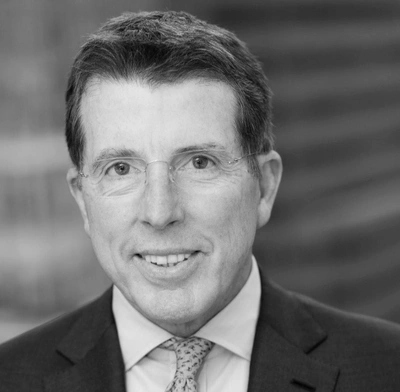In July, a consortium of Sonnet BioTherapeutics, Paradigm Operations and Atlas Merchant Capital, along with un-named others, said they were coming together to form Hyperliquid Strategies.
Who is Bob Diamond, the ex-Barclays Banker Hyping HYPE?

Hyperliquid will be a crypto treasury holding HYPE tokens, initially buying 12.6 million for around $583 million. The price of HYPE hit its all-time high following the announcement and it has largely held its ground since.
The main investors
Atlas Merchant Capital is providing the key Hyperlink officers, with founders Bob Diamond and David Schamis set to become Chairman and CEO, respectively.
Paradigm, started by Coinbase co-founder Fred Ehrsam in 2018, is a crypto and blockchain investor. Among other investments, it was a lead investor in Sam Bankman Fried’s FTX and made a reported $278 million loss when the exchange collapsed.
Sonnet BioTherapeutics is an oncology biotech company.
In a crypto Markets Outlook podcast in Aug, Diamond said they selected Sonnet because it is a small listed company, with a market capitalization of around $4-5 million, that provides an ideal platform to raise capital to buy HYPE.
Diamond at Barclays
Bob Diamond became CEO of Barclays Capital in 1996, having held senior positions at CS First Boston Pacific. He became Group CEO of Barclays at the beginning of 2011, though his tenure was short.
The foundations for his departure from Barclays were first laid in 2006, when Barclays Capital was exposed for making over £1 billion a year from a tax fraud that involved claiming the same tax credits from both the UK and US governments in a scheme knows as “Double Dip”.
The then UK Business Secretary, Peter Mandelson, called Diamond the “unacceptable face of banking” in 2010, in response to Diamond’s reported remuneration. "He's taken £63m not by building business or adding value or creating long-term economic strength, he has done so by deal-making and shuffling paper around,” Mandelson told The Times. Mandelson is currently the UK ambassador to the US.
LIBOR scandal
The final straw for Diamond at Barclays came in 2012 when the bank was fined a total of £290 million for manipulating the London Inter-Bank Offered Rate (LIBOR), both for profit and to make Barclays look stronger than it actually was, particularly during the 2008 financial crisis.
On 29 June 2012, Diamond said would not resign. He resigned on 3 July. At the time, the New York Times said, “Bob represented investment banking big time. He represented the success of it — but also the sense that investment banking is dicey and not a completely sound business. He represented a way of doing business that we've become very uncomfortable with."
Post Barclays
Eighteen months later, Diamond and Schamis started Atlas Merchant Capital.
One project was Atlas Mara, with the ambition of it becoming a major bank in sub-Sarah Africa. However, by 2016 it was clear it was not working, and it was finally delisted from the London Stock Exchange in 2021. The remains are now part of Access Bank Zambia.
Other Atlas Merchant Capital ventures have been more successful, including the 2017 purchase of the venerable Panmure Gordon, now merged as Panmure Liberum. And the company’s biggest reported exit came when Atlas sold annuities and insurance firm Talcott Resolution to Sixth Street Partners in 2021 for $2 billion, according to the Wall Street Journal.
Entering crypto
Hyperliquid will be Atlas Merchant Capital’s first foray into the crypto world. Diamond said, in the podcast, that the time is right because of the political environment is now favourable and it is clear cryptocurrencies are a good store of value.
Speaking specifically about HYPE, he said, “We are absolutely gob-smacked it has so little attention”, citing the decentralized protocol as critical. HYPE is a native asset on its own Layer 1 exchange chain, meaning it is not on Ethereum or another blockchain, as many crypto tokens are.
Diamond and Schamis said that around two thirds of as-yet unnamed investors are contributing HYPE tokens in return for shares. This involves tax efficiencies which need shareholder approval, which the pair said was likely to happen in Sept or Oct. They also said they expect to close the deal and launch Hyperliquid at some point in Q4.







